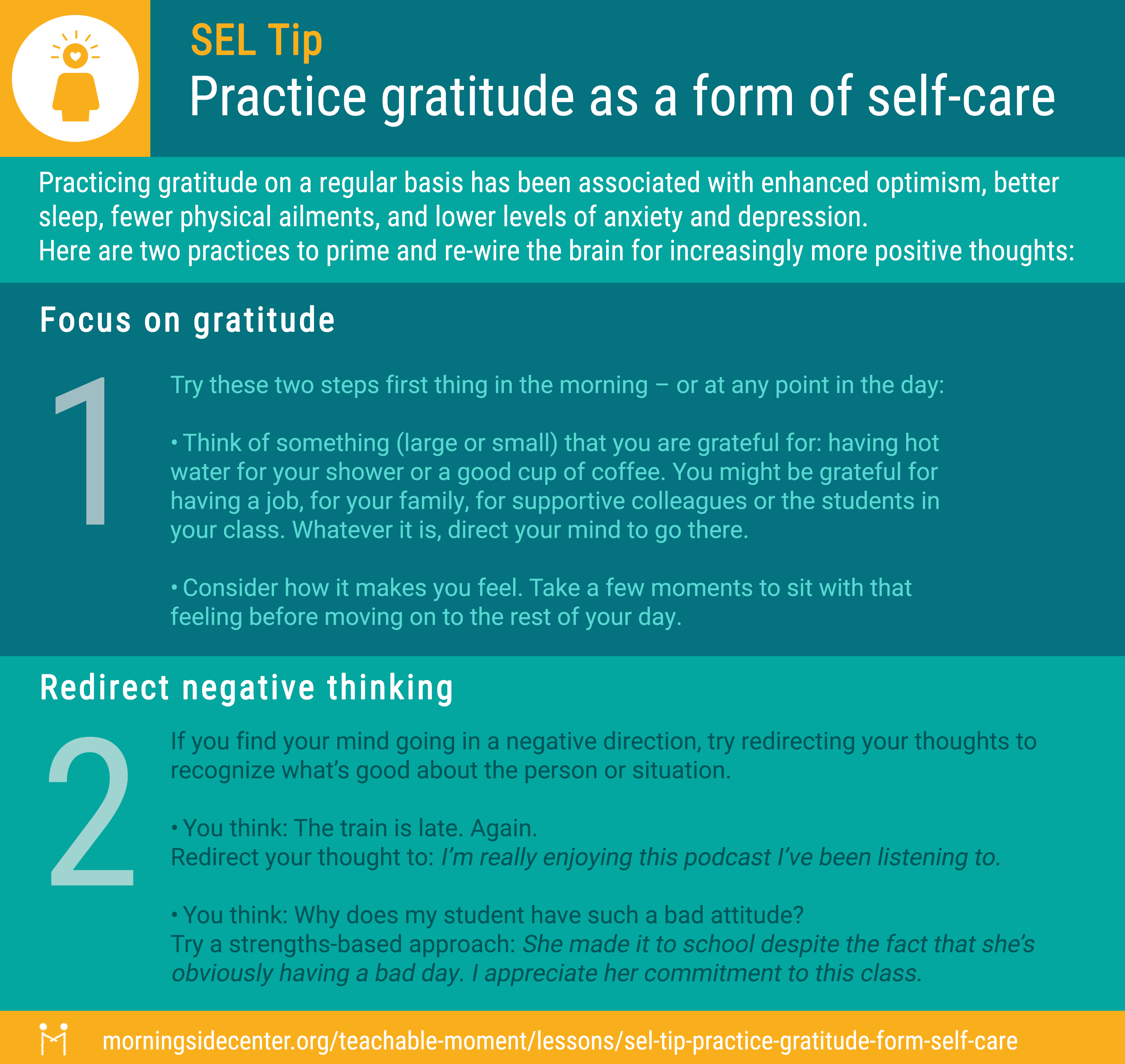Being an educator is stressful – in fact, it’s one of the most stressful professions in the country. No wonder so many educators are looking for ways to combat our stress, or at least take it down a notch. Research shows that one way to do this is to cultivate gratitude as a nurturing self-care practice. Practicing gratitude on a regular basis has been associated with enhanced optimism, better sleep, fewer physical ailments, and lower levels of anxiety and depression.
Gratitude practice can also reshape the brain. While we used to believe that our brains were fixed in adolescence, in recent years neuroscientists have discovered that we can continue to grow and reshape our brains well into old age.
Say you’re a complainer. You’re always looking for what’s wrong with a person or situation. Not only does this negative outlook impact how you feel, your accompanying thoughts manifest as a neural pathway in the brain. And as you travel down this negative path more and more often, new connections between neurons are created to facilitate this particular thought process. Eventually the pathway may even be insulated, using a process called myelination, which further increases the speed with which these neurons fire together.
But if instead you turn your thoughts to what’s good about a particular moment, a different set of neurons start to fire together. With practice, the connection between them is strengthened and a new neural pathway comes into being. This more traveled path becomes the default as the “what’s bad about the person or situation” path is pruned back, in a process called “synaptic pruning.” Over time, the physical structure of the brain is re-wired.
Here are two practices to prime and re-wire the brain for increasingly more positive thoughts:
1. Focus on gratitude
Try these two steps first thing in the morning – or at any point in the day:
- Think of something you are grateful for. It could be anything, large or small. Consider, for instance, feeling grateful for waking up in a warm bed, having hot water for your morning shower, or having a good cup of coffee to start your day. You might be grateful for having a job, for your family, for supportive colleagues or the students in your class. Whatever it is, direct your mind to go there.
- Consider how it makes you feel. Take a few moments to sit with that feeling before moving on to the rest of your day.
2. Redirect negative thinking
If you find your mind going in a negative or complaining direction, try redirecting your thoughts. Try to recognize what’s good about the person or situation you are inclined to complain about. Taking this step can radically change the way you feel in the moment. And if you get into the habit of redirecting our thoughts in this way, you contribute to a different – positive and strengths-based – neural pathway in your brain.
For example:
- You think: I hate getting up early.
Search your mind for any positive in the situation, such as: I love the quiet, first thing in the morning.
- You think: The train is late. Again.
Redirect your thought to: I’m really enjoying this podcast I’ve been listening to.
- You think: Why does my student have such a bad attitude?
Try a strengths-based approach: She made it to school despite the fact that she’s obviously having a bad day. Good for her. I so appreciate her commitment to this class.
Gratitude practice is not just a form of nurturing self-care. Taking charge of our thoughts in this way can shift our feelings in a positive direction and improve our attitude. That improved attitude can lead to a shift in our behavior (perhaps we are more calm or thoughtful) – and that can result in improved outcomes in our classrooms. Just imagine those improved outcomes … and feel your stress levels drop!
